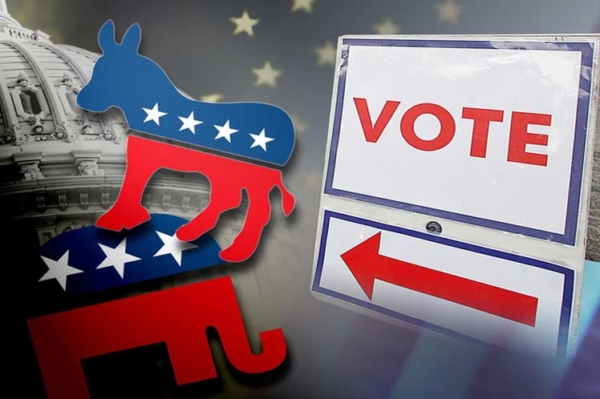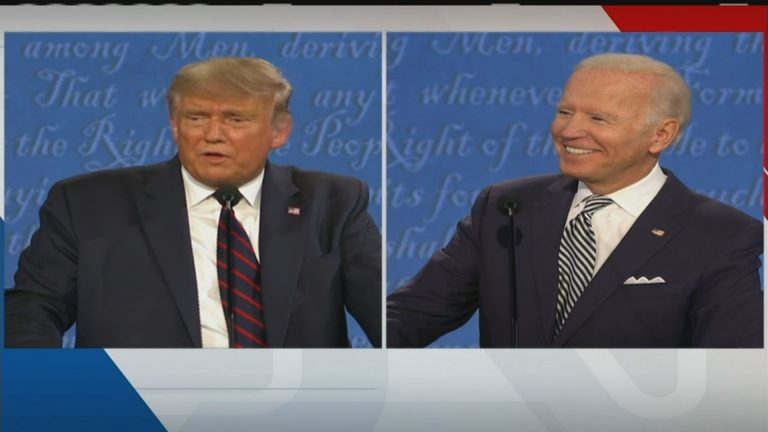
Published 25/03/2023 11:34 | Edited 03/25/2023 09:15
The Biden administration is barely halfway through, but everything in American politics revolves around the calculations for the presidential election in 2024. Republicans won control of the House of Representatives in the mid-term elections and will use the newly won majority to make President Biden’s life difficult, but they need to be careful not to alienate the electorate and give ammunition to the Democrats.
Many of the programs introduced by Biden are popular with voters, and trying to derail them could backfire. Even former President Donald Trump, the strongest Republican candidate for 2024, recently posted a video warning Republicans not to “cut a single penny” from Social Security or Medicare, the US government-run health insurance system. United States of America intended for people aged 65 years or older or who meet certain income criteria.
In the State of the Union address, which the President of the United States is required by the Constitution to deliver every year, except for the first year of his term, to account for and publicize his priorities to Congress and the justices of the Supreme Court, Biden highlighted mainly the economic achievements of his first two years in office. He praised the economic recovery, the reduction of inflation and the drop in the unemployment rate, which reached the lowest level in the last 53 years. He recalled that 12 million jobs were created in two years, more than any other president has ever created in four years (Trump in his government program had promised to create 24 million in 10 years). He also spoke about the attack on the Capitol, on January 6, 2021, praising the resilience of American democracy, reinforced the need to continue supporting Kiev, in the War in Ukraine, and, of course, dealt with the dispute with the China. He said he seeks competition but not conflict with the Chinese, but said he won’t “apologize for investing in strengthening America.” He took advantage of the balloon episode to say that “make no mistake, as we made clear last week, if China threatens our sovereignty, we will act to protect our country. And let’s be clear: winning the competition with China should unite us all.’
Biden is expected to announce his candidacy for re-election in the coming weeks. But not everything is rosy for the American president. With the tightening of monetary policy by the Fed, the risk of a recession in the US has increased and the chances of a reduction in spending by families are greater.
Read too: Biden wants to cut $3 trillion deficit with 25% tax on richest people
The minutes of the last FED meeting, in February, state that “The leaders agreed that the risks to the outlook for economic activity are pointed to the downside”, with “the probability of the economy going into recession in 2023 still high” (Valor 22 /02). The Fed has raised its benchmark interest rate by 4.5 percentage points since last March, most recently to a range between 4.5% and 4.75%. This is the highest level since the early 1980s, which many economists predicted would put a brake on investment and hiring. As highlighted by Valor newspaper (02/07), “A Gallup poll released on Monday [06/02] showed that Americans are discouraged by the prospects for growth, with about four in 10 expecting higher unemployment.”
Despite the boastful tone of his speech, Biden is halfway through his highly unpopular term. As reported by Folha de S. Paulo (02/08), “the democrat reaches half of the government with 43.2% approval, according to the FiveThrithyEight poll aggregator. The figure is slightly higher than that of Trump at the same time in office (40.2%), but below those of Barak Obama (48.5%) and George W. Bush (59.5%). The disapproval rate of the current president is 52.2%.” According to the Wall Street Journal (10/02), “Recent polls show that a majority of Democratic voters do not want him to run for a second term, and his approval ratings remain low.”
Read too: Internal divisions among Republicans favor Biden’s recovery
Complicating matters further, the White House is also deadlocked with House Republicans over the government debt limit, with House Speaker Kevin McCarthy (R., Calif.) demanding spending cuts in exchange for raising the debt ceiling. Biden’s stance is that the debt ceiling should be raised without conditions, warning of the economic fallout if the US defaults on its debt. If the Chamber does not approve the increase in the limit, essential government activities could be paralyzed from July onwards, since the ceiling of US$ 31.4 billion was reached in January. As the Wall Street Journal reported (Feb. 10), “Since taking control of the House last month, Republicans have been arguing that Congress should cut spending in exchange for GOP support to raise the debt limit, now in around US$31.4 trillion. In a speech on Monday ahead of President Biden’s State of the Union address on Tuesday, McCarthy (R., Calif.) laid out the size of the cuts Republicans are seeking.” Also according to the Wall Street Journal, “The Committee on a Responsible Federal Budget, a nonpartisan budget group, estimated that balancing government spending and revenue in 10 years—without further tax increases—would require a 25% cut in spending. from the government. McCarthy reiterated that he would not support cuts to Social Security and Medicare – the biggest federal spending programs – and did not specify a timeline for balancing the budget. But without raising taxes or cutting Social Security, Medicare, or veterans and defense spending, the CRFB estimates that Congress would need to cut 85% of spending in all other categories to balance the budget in 10 years.”

On the republican side, the confusion is also great. Republican party bosses, as well as their mega campaign financiers like Charles Koch, would like to get rid of Donald Trump, arguably the most toxic figure in American politics today. Polls show that Trump is the only Republican candidate Biden could win. But it won’t be easy to get rid of him in 2024. Gone are the days when party bosses defined who would be the candidate for the presidential elections.
Since 2016, when Trump took over the Republican party. Even though he was not the favorite of the party leadership and financiers, the republicans were hostages of a cruel and unscrupulous subject, but who managed to captivate an important part of the party’s electorate: the lower white and Christian middle class and, not least, working class, for whom the slogan MAGA (Make America Great Again) and its anti-immigrant and anti-China discourse sound like music.
There are already at least eight Republican pre-candidates for the 2024 primary election, which shows that Trump’s nomination to run again for the Presidency will not be a walk in the park. But the paradox is that the greater the number of Republican candidates contesting the primaries, the better for Trump who, as in 2016, will be able to win the nomination with the thirty-odd percent of votes he has among the Republican party’s primary voters.
So far, the only candidate to officially launch herself has been the former governor of South Carolina, Nikki Haley, who during the administration of Donald Trump was the US ambassador to the UN. Her chances, however, are minimal, because she was seen, until recently, within the Republican party, as a supporter of Trump. No one with those credentials could be a credible candidate to challenge Trump. As Edward Luce of the Financial Times put it (15/02), “The only candidates who can defeat Trump are those who never served him. Florida Governor Ron DeSantis, South Carolina Senator Tim Scott and Virginia Governor Glenn Youngkin are the most plausible. Of those, only DeSantis – the conservative anti-woke spearhead – has so far been profiled to compete with Trump. He also enjoys the support of many of the party’s big donors.”
According to Luce, “In a head-to-head match, De Santis would beat Trump, according to most polls. But in a crowded race, Trump could repeat what he did in 2016, when he won primary after primary with less than half the votes. From Trump’s point of view, the more candidates in the running, the better. In a way, this underestimates his possibilities. The weaker Trump appears, the more likely others will enter the race. Call it the “man, I win; tails, you lose.” This is the familiar dread that descends upon the establishment republican”. According to The Economist magazine (2/14), the latest YouGov/Yahoo poll shows that only 5% of Republican voters would support Nikki Halley for the party’s nomination. Trump and DeSantis, according to the poll, are far ahead, with 37% and 35% of the vote, respectively.
Read too: United States: The Economic Decline of an Empire
Source: vermelho.org.br

